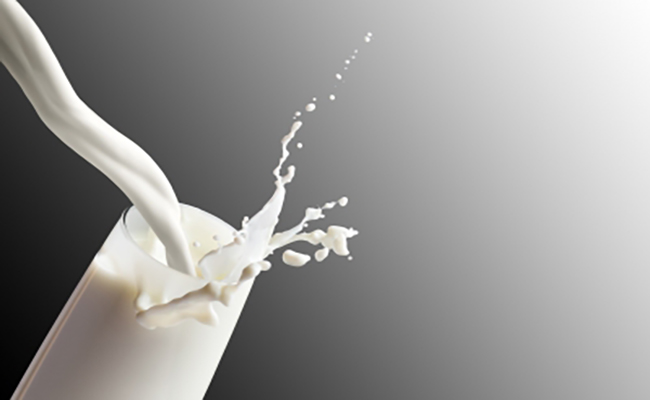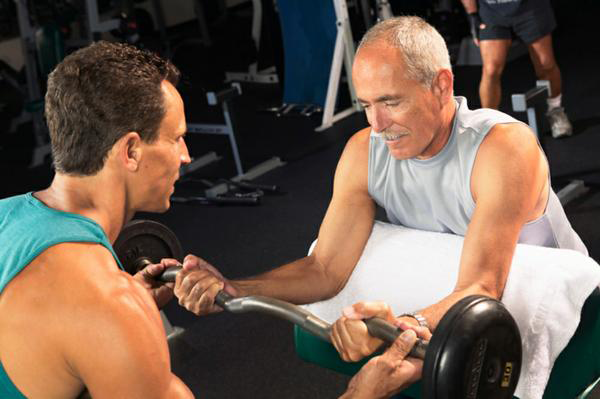Lower Blood Pressure with Whole Grains
The long running Health Professional Follow-Up Study has released new findings. The study found men who eat a high level of whole grains to be 19% less likely to develop high blood pressure compared to those eating the lowest levels of whole grains. The individuals with lower risks of developing high blood pressure consumed 52 grams of whole grains daily versus only 3 grams in the lower whole grain group.
Even though this study focused on men, similar results are being seen for women in the Women’s Health Study.
A few possible reasons increasing your intake of whole grains may prevent high blood pressure include better insulin sensitivity, lower blood sugar, decreased food intake to higher feelings of satiety (fullness).
Current whole grain recommendations are 85 grams per day.
How many grams of whole grains do you think you consume each? Do you have ideas for how you can increase your intake?
All the best,
Lisa Nelson RD
7 Natural Ways to Lower Blood Pressure
http://www.lowerbloodpressurewithlisa.com
Would you like to ask Dr. Mark Houston, hypertension expert, a question?
 Are you ready to get answers to your most pressing heart health questions from a nationally known blood pressure expert and director of The Hypertension Institute?
Are you ready to get answers to your most pressing heart health questions from a nationally known blood pressure expert and director of The Hypertension Institute?
Well, I’ve got great news! Dr. Mark Houston has agreed to answer your questions and I will be interviewing him later this month. I want to ask the questions you want answers to. Post your question as a comment to this post.
Here’s a little background information on Dr. Houston. He’s been practicing medicine since 1974 when he graduated from Vanderbilt Medical School. He went on to complete his medical internship and residency in California. He returned to Vanderbilt University Medical School and from 1978-1990 performed many roles including Medical Director and Associate Professor of Medicine.
Dr. Houston is triple board certified by the American Board of Internal Medicine, the American Society of Hypertension, and the American Board of Anti-Aging Medicine. In addition to his medical background he also obtained a masters degree in clinical human nutrition in 2003. In 2008, Dr. Houston was selected by Consumer Research Council as one the TOP PHYSICIANS in the United States. Just this past November and May, 2009, Dr. Houston was selected by USA Today as one of the most Influential Physicians in the U.S. in both hypertension and hyperlipidemia.
Dr. Houston is a consulting reviewer for over 20 major medical journal in the U.S., he’s completed over 70 clinical research studies in hypertension, hyperlipidemia, and cardiovascular disease, and Dr. Houston has published over 150 medical articles in peer-reviewed journals. He speaks nationally and internationally on hypertension and has written three best-selling books – The Handbook of Antihypertensive Therapy, Vascular Biology for the Clinician, and What Your Doctor Does Not Tell You About Hypertension: The Revolutionary Nutrition and Lifestyle Program to Help Fight High Blood Pressure.
The list of Dr. Houston’s accomplishments goes on and on. I’ve covered just some of the highlights of his career above. With all of his research commitments, speaking engagements, etcetera; he still works with patients one-on-one in Nashville, Tennessee, and teaches Vanderbilt medical students, interns, and residents.
This is a great opportunity for you to get your questions answered. When submitting your question, keep in mind Dr. Houston areas of specialty – hypertension (high blood pressure), lipid disorders (cholesterol/blood fats), prevention and treatment of cardiovascular diseases, nutrition, clinical age management and general internal medicine.
Make the most of Dr. Houston’s generous offer to make time in his busy schedule to answer your questions.
Submit your question by posting as a comment below.
All the best,
Lisa Nelson RD
Heart Healthy Tips
http://www.hearthealthmadeeasy.com
How to Use Calcium to Lower Blood Pressure

The link between calcium and blood pressure was noticed years ago when researchers realized people drinking hard water had less high blood pressure than those drinking soft water. Hard water contains more minerals, including calcium.
Individuals receiving more than 800 mg of calcium daily have a 23 percent decreased risk of high blood pressure versus those consuming less than 400 mg of calcium per day.
Back in 1996, scientists compiled all the research to date on calcium and high blood pressure. The results showed calcium supplements given to individuals with high blood pressure lowered systolic blood pressure (top number) an average of 4.3 mm Hg and diastolic blood pressure (bottom number) 1.5 mm Hg.
Some people respond better to supplemental calcium than others. Those with the best results include African-Americans, elderly, pregnant women, menopausal women, people with salt-sensitivity, individuals with a high sodium intake, and those with Type II diabetes.
For the best results, don’t rely on a supplement alone. Work to increase your intake of calcium containing foods – dairy. To promote heart health, select low fat dairy products, such as low fat milk, cheeses, and yogurts.
Additional calcium sources:
Leafy greens (i.e. kale, collard, turnip, mustard greens)
Broccoli
Sardines
Canned Salmon
Calcium fortified Orange Juice
Tofu (if made with calcium carbonate)
For even better results, supplement calcium along with vitamin D. One study supplemented women 1200 mg of calcium to reduce blood pressure. When they added 800 IU of vitamin D, systolic blood pressure decreased an average of 9.3 percent.
Don’t forget three other minerals affect how effective calcium – potassium, magnesium, and sodium. For calcium to have the greatest positive effect on blood pressure, your levels of these three nutrients need to be adequate as well.
For additional steps to lower blood pressure, check out the free e-course 7 Naturals Ways to Lower Blood Pressure.
All the best,
Lisa Nelson RD
Image courtesy of alex_ugalek at freedigitalphotos.net
Healthy Ways to Lower Blood Pressure – Hibiscus Tea and the Link with High Blood Pressure
If you are prehypertensive or have mild high blood pressure a study has found that drinking hibiscus tea may help lower your blood pressure. A study followed 65 individuals aged 30-70 years-old with initial blood pressure readings of 120-150/<95. Individuals were split into two groups, with one group drinking three cups of hibiscus tea daily. Those consuming the tea saw a 6.2 mmHg drop in systolic blood pressure (top number).
Hibiscus is a common ingredient in herbal teas, providing a fruity, tart taste and red color. Hibiscus is also a good source of anthocyanins, flavones, flavonols, and phenolic acids. This isn’t the first study to show a link between hibiscus tea and reduced blood pressure.
February is American Heart Month. In recognition of American Heart Month you can access Heart Health Made Easy at a 25% savings. Learn more about this take action guide to lower cholesterol and blood pressure at http://www.hearthealthmadeeasy.com.
All the best,
Lisa Nelson RD
7 Natural Ways to Lower Blood Pressure
Weight Lifting and Blood Pressure – How does weight lifting impact blood pressure?
 Lifting weights can cause a temporary, but dramatic blood pressure rise. Systolic blood pressure can increase up to 350-400 mm Hg and diastolic blood pressure to 150 mm Hg even if your blood pressure is typically a healthy level of 120/80 or less.
Lifting weights can cause a temporary, but dramatic blood pressure rise. Systolic blood pressure can increase up to 350-400 mm Hg and diastolic blood pressure to 150 mm Hg even if your blood pressure is typically a healthy level of 120/80 or less.
Long-term high blood pressure is linked to arterial endothelial dysfunction. The endothelium is the inner lining of your artery walls. Endothelial dysfunction can result in the hardening of artery walls. Researchers have been monitoring the effects of short duration rises in blood pressure, such as what occurs during strength training, to determine the effect on endothelial function. It has been determined that acute rises in blood pressure impairs endothelial function in untrained individuals and regular resistance training helps protect against vascular dysfunction.
At one time, weight lifting was discouraged if you lived with high blood pressure. However, this is no longer the recommendation. Regular physical activity that includes moderate strength training is one of many natural ways to lower blood pressure. A study published in Hypertension monitored participants completing resistance training 2 to 5 times per week and found strength training to help lower resting blood pressure.
Including strength training and aerobic physical activity can be a positive step towards lowering blood pressure; however, you must consult your physician before beginning an exercise and/or strength training program. Strength training is not recommended if you have uncontrolled high blood pressure, untreated heart disease, or an irregular heart rate.
The current American Heart Association recommends individuals 18 to 65 years-old include moderate intensity aerobic physical activity 5 days a week for a minimum of 30 minutes and strength training at least twice a week.
Be sure to sign-up for the free e-course 7 Natural Ways to Lower Blood Pressure.



